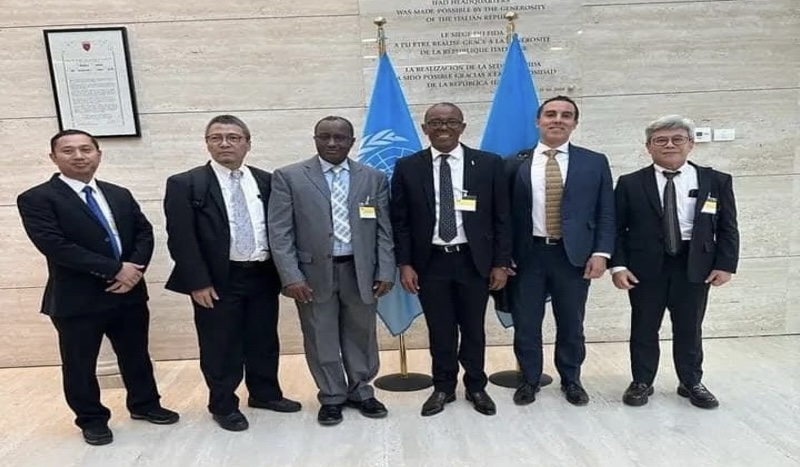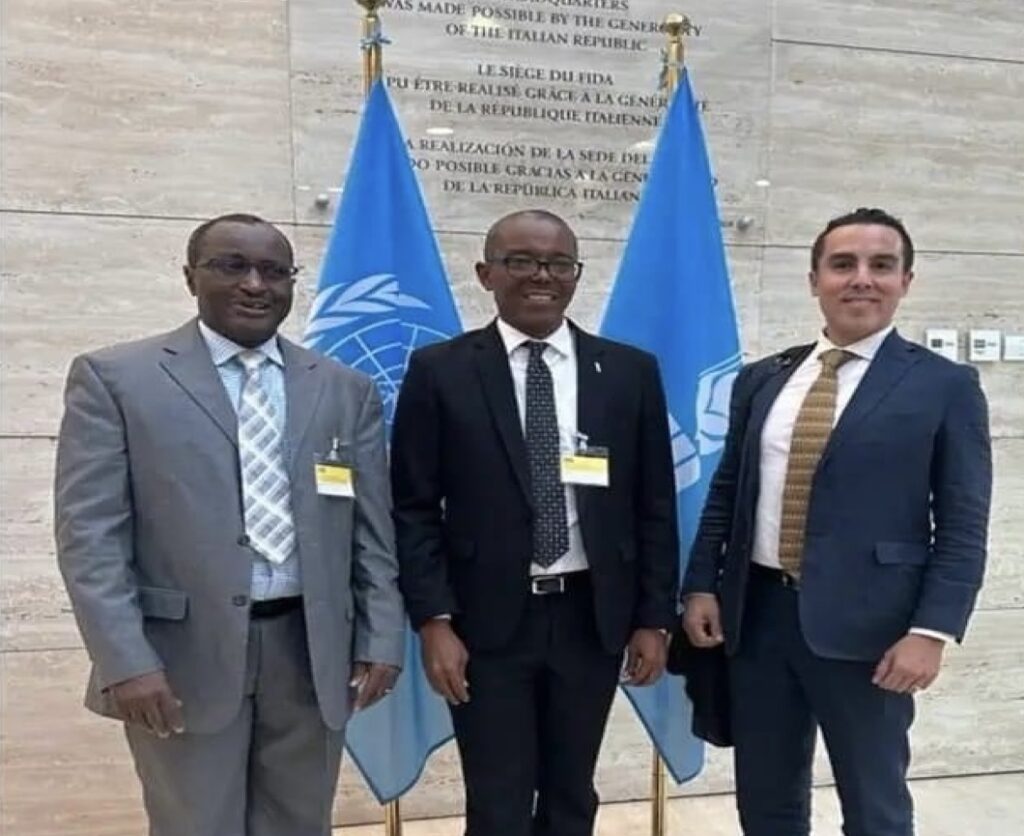Minister of Lands, Housing and Country Planning of Sierra Leone, Dr Turad Senesie, delivering a speech at the High-Level Session on Building Together a Global Land Agenda, underscored the urgent need for broader coalitions and partnerships to strengthen land tenure security and promote equitable access and control over land resources. The speech served as Africa’s representation at the international event held at the IFAD Headquarters in Rome.
In his address, the Sierra Leone Minister emphasized the commitment of the Government of Sierra Leone, led by His Excellency, Dr. Julius Maada Bio, to address the critical issues surrounding land reform, highlighting that access to land in Sierra Leone is becoming a major challenge for large-scale investments, as the sale of land at exorbitant prices has led to a surge in individual land ownership for profit rather than productive use.
Dr. Senesie further elaborated on the challenges facing Sierra Leone’s land sector, including outdated and contradictory policies, weak deed registration systems, inadequate land records management, and limited institutional and technical capacity. Insufficient financing in Africa has made Ministries, Departments, and Agencies (MDAs) heavily reliant on donor funds that may not always align with national policy objectives. Additionally, the absence, incompleteness, and unreliability of data sets have hindered effective land management and administration.
To address these challenges, the Government of Sierra Leone has implemented various measures as part of the land reform process. The enactment of the Customary Land Rights Act in 2022 has aimed to eliminate discrimination and provide equal access to land for all, including the Creole tribe, previously excluded from acquiring land in the provinces. The Act has also granted women the right to inherit family land and access land, without marriage as a precondition.

The Lands Minister emphasized the importance of mapping, recording, and registering land titles to enhance tenure security, particularly for customary land rights in the provinces. Sierra Leone has also established the National Land Commission to effectively implement the National Land Policy and the Customary Land Rights Act.
The success drivers of Sierra Leone’s land reform process were identified as strong political will, the establishment of a multi-stakeholder platform involving government, traditional leaders, civil society organizations, development partners, and the private sector, and robust funding mobilization. Minister Senesie expressed gratitude to the international development partners, including the UNDP, FAO, and World Bank, for their financial support and urged others to provide crucial assistance to sustain the land reform process.
He stressed the importance of mobilizing funds for land mapping, surveys, and cadastral index mapping to ensure global support for land tenure security, access to land, and sustainable development. Concluding his speech, the Minister reaffirmed the Government of Sierra Leone’s commitment to prioritize land reform as a cornerstone for sustainable development, prosperity, and the well-being of its citizens.
The High-Level Session on Building Together a Global Land Agenda, witnessed presentations from other continents, with Asia represented by Indonesia, America by Columbia, and Europe by France.
The event’s objective was to foster greater collaboration and take action to strengthen land tenure and resource management worldwide. The Minister was accompanied by the Director of Policy and Planning in the Ministry of Lands, Housing and Country Planning, Dr. Alphajoh Cham.
